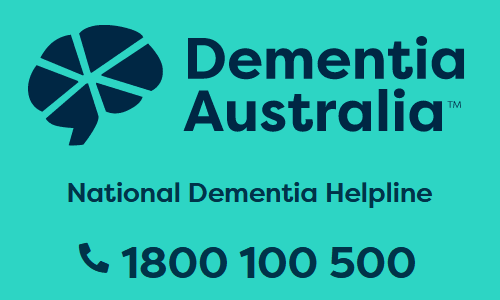Staying alert, staying connected
Many people with dementia want to know if there are ways of preventing, slowing down or reversing the changes in the brain.
The research done in recent years has led to an explosion in knowledge about how the brain works.
Although nothing has yet been found to prevent or reverse dementia, research has shown that keeping the brain active, engaged and stimulated is good for your brain.
Researchers know that people with dementia may be able to learn new things and can be involved in rehabilitation (rehab) programs that keep the brain active and engaged.3

They also found that it’s good for your mind to learn something new, if possible. You could enrol in a course, sing with a choir, join a dance class. Or join a program designed for people with dementia to keep your brain active and stimulated.
There are many other ways to keep your mind active; they also keep you connected to the world.
These might be:
- seeing family and friends, or making new friends
- staying involved with your community, club, religious group or sporting group
- joining groups for activities, outings and fun
- reading, doing puzzles and playing games
If you’d like some support with this, occupational therapists, psychologists, neuropsychologists and diversional therapists are the professionals to talk to. They can find out about your interests and abilities; and maybe point you towards rehab. You’ll enjoy it more if it’s something that interests you. And music therapists can provide specialised help.
Talk to
Occupational therapist
Psychologist
Neuropsychologist
Diversional therapist
Music therapist
Noelene’s story
Noelene loves music, loves to sing and loves to dance. She always has. Her house was full of music and she used to sing her children to sleep every night. Noelene’s love of music and singing has not changed even though some other things have. When Noelene’s skills in using her CD player changed, her son and daughter put all her music onto an iPod and with the press of just one button, Noelene can continue to enjoy all the music she loves.
Daniel's story
A couple of years after being diagnosed with Alzheimer’s disease, Daniel joined a study on cognitive stimulation therapy (CST) at a metropolitan teaching hospital. CST is based on the idea that consistent stimulation of memory, attention, language and other cognitive skills might slow the decline in thinking and memory associated with dementia. Daniel joined a group with eight others who were also living with dementia. Two trained allied health professionals ran these weekly groups. Although he questioned the reason for attendance each week, Daniel never missed a session. He made friends with another man and they caught the bus together each week. Daniel made a great contribution to the group; he enjoyed hearing what others had to say and sharing his own strategies to assist his declining memory. Daniel saw the group as an exercise program for his brain, saying:
It must be useful because it makes me think.
When the program came to an end, the occupational therapist referred him to a community gym. Daniel has been going twice weekly for years. He walks to the station and catches the train to the next suburb on his own. He enjoys the gym so much he has recruited several friends to join the gym, and they go for a coffee and a sandwich after each session.
3 Clinical practice guidelines and principles of care for people with dementia; 2016 Sydney. National Health and Medical Research Council Partnership Centre for Dealing with Cognitive and Related Functional Decline in Older People.
The National Dementia Helpline is an Australian Government funded initiative.


